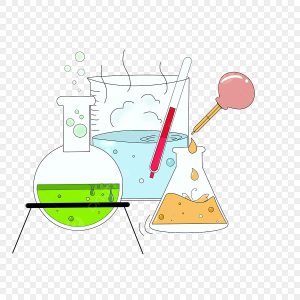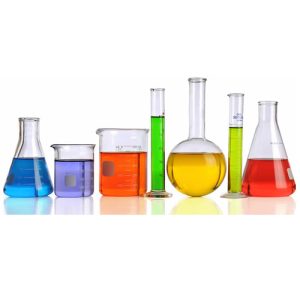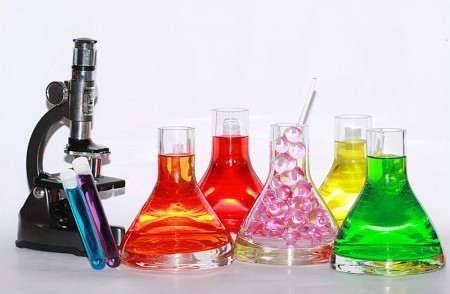Uncategorized
Choosing the Right Lab Equipment for Beginners
Choosing the Right Lab Equipment for Beginners
Starting a science lab, whether at home, in a classroom, or as part of a school project, can be a daunting task for beginners. With so many options available, it’s important to choose lab equipment that is suitable for your skill level, safe to use, and versatile enough for a variety of experiments. Having the right tools will not only enhance the learning experience but also ensure safe and successful scientific exploration.
In this guide, we will discuss how to choose the right lab equipment for beginners. Whether you are a student, teacher, or parent looking to set up a lab at home, this guide will help you make informed decisions about the essential tools you’ll need to get started.

Step 1: Understand the Purpose of Your Lab
Before you start buying equipment, it’s important to understand the purpose of your lab. Are you focused on chemistry experiments, biology observations, physics demonstrations, or all-around science exploration? This will help determine which tools are most necessary.
- Chemistry Labs: Focus on glassware, chemicals, and measuring tools.
- Biology Labs: Emphasize magnification tools, petri dishes, and microscopes.
- Physics Labs: Require tools to measure force, motion, and basic electrical setups.
For beginners, it’s best to start with a general science kit that covers multiple disciplines, as it allows for diverse learning experiences and ensures you’re ready for different types of experiments.
Step 2: Safety First
One of the most important factors when choosing lab equipment for beginners is safety. Even the simplest experiments can become dangerous without the proper safety tools. Here’s what to look for:
- Safety Goggles: Protect your eyes from chemicals, heat, and other hazards.
- Lab Coats or Aprons: Protect your clothing and skin from spills and splashes.
- Gloves: Use disposable gloves when handling chemicals or biological samples.
- First-Aid Kit: Always have a basic first-aid kit nearby in case of an accident.
Safety should be your first priority, especially when setting up a beginner lab. Always read the labels and instructions of any tools, chemicals, or materials before using them.
Step 3: Essential Lab Equipment for Beginners
Now that you know the basics of lab safety, it’s time to choose the equipment you’ll need. Here are the essential tools for a beginner science lab:
1. Measuring Tools
Accurate measurements are key in scientific experiments, and for beginners, simple yet reliable tools are the best choice.
- Graduated Cylinders: Ideal for measuring liquids. Choose a set with different volumes (e.g., 50mL, 100mL, 250mL).
- Measuring Spoons and Cups: These are useful for measuring solids and liquids in smaller quantities.
- Digital Scales: If you’re working with solid substances, a small digital scale will help you measure accurately.
2. Glassware
Glassware is an essential part of any lab. Beginners don’t need an overwhelming collection but having a few key pieces is necessary for experimenting.
- Beakers: Ideal for mixing and heating liquids. Choose a few of different sizes (e.g., 250mL, 500mL).
- Flasks: A conical flask (such as an Erlenmeyer flask) is useful for mixing substances and can be heated.
- Test Tubes: Perfect for holding small quantities of liquids or solids. Get a test tube rack for easy organization.
3. Stirring and Mixing Tools
To mix liquids and solid materials in your experiments, having the right stirring tools is a must.
- Stirring Rods: Made from glass or plastic, these are used to mix liquids safely.
- Magnetic Stirrer: If you’re setting up a more advanced lab, a magnetic stirrer can help automatically mix liquids with a magnetic stir bar.
4. Safety Gear
As mentioned before, safety is paramount, and you’ll need to invest in some basic gear:
- Safety Goggles: Protect your eyes from splashes or chemicals.
- Protective Gloves: Use them when handling substances like acids or chemicals.
- Lab Coats: Protect your clothes and skin from harmful substances.
- Fire Extinguisher: Especially if you plan to do experiments that involve heat.
5. Basic Heat Sources
Some experiments require heating substances. While beginners don’t need a full Bunsen burner setup, here are some safe heat sources:
- Electric Hot Plate: A safer alternative to Bunsen burners, ideal for heating liquids in beakers or flasks.
- Candles or Alcohol Lamp: For small, low-heat experiments, these can provide a safe heat source.
6. pH Testing Kit
A pH testing kit is essential for testing the acidity or alkalinity of liquids. It’s useful for a wide range of experiments, from chemical reactions to biology experiments.

- pH Paper: A simple, inexpensive way to test pH.
- Digital pH Meter: For more accuracy, beginners can opt for a digital meter.
7. Magnification Tools
In any biology-related experiments, magnification tools are necessary for observing small details.
- Handheld Magnifying Glass: An affordable and easy tool for examining small objects, insects, or plant cells.
- Microscope: For more detailed observations of specimens like bacteria, plant cells, or animal cells. Beginners can choose a simple compound microscope with a few objectives.
8. Miscellaneous Tools
In addition to the above tools, consider the following items to enhance your experiments:
- Petri Dishes: For growing bacteria or observing biological samples.
- Funnels and Strainers: Useful for transferring liquids or filtering solids from liquids.
- Tweezers: For handling small objects in experiments.
- Dropper or Pipette: For precise liquid measurements, especially in small quantities.
Step 4: Start Small and Expand Gradually
For beginners, it’s best to start with the basics and build your lab over time. Choose a simple science kit or starter set that includes the essential tools. This will allow you to experiment with various scientific principles without overwhelming yourself or spending too much money on equipment you may not need right away.
As you gain more experience and your skills develop, you can gradually expand your collection of equipment. Whether you want to experiment with more advanced chemistry setups or delve into biological research, having a foundation of basic lab tools will allow you to branch out safely.
Step 5: Organize and Maintain Your Lab
Once you have your lab equipment, keeping it organized and well-maintained is crucial for smooth operation. Here are a few tips:
- Storage: Store glassware and delicate tools in labeled containers to keep them safe and easily accessible.
- Cleaning: Clean tools thoroughly after each experiment, especially glassware and any items that come into contact with chemicals.
- Labeling: Keep chemicals and substances clearly labeled and organized to avoid confusion.
Conclusion
Choosing the right lab equipment for beginners is all about starting with the essentials and building from there. By focusing on safety, versatility, and basic tools, you can create a functional and safe environment for conducting experiments. Whether you’re a student, teacher, or hobbyist, investing in quality equipment will allow you to explore and learn in an engaging, hands-on way.
At Glowtopis.com, we offer a wide range of beginner-friendly lab tools and kits to help students, educators, and science enthusiasts get started. Explore our collection and start your scientific journey today!

